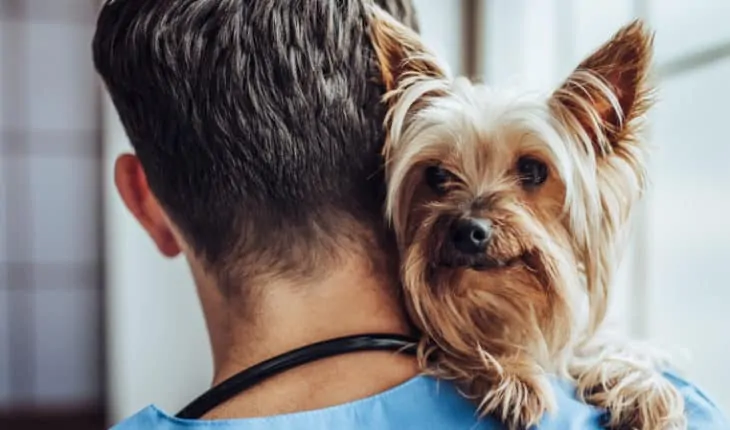15 occasions when you should urgently get your pet to the vet:
It can be difficult to assess the severity of the situation when your pet has an accident or is unwell. You may be concerned about the symptoms your pet is showing.
The following 15 key factors can help you make this critical decision as to whether your pet needs urgent veterinary attention.
Each decision will vary from case to case and from pet to pet, but we would strongly advise the following situations are treated as a veterinary emergency:
- If your pet appears not to be breathing, is struggling for breath or is breathing in an unusual or laboured way.
- In case of a severe injury that is bleeding profusely, and you are unable to stop the bleeding even with direct pressure on the wound.
- They are unconscious or appear dazed or unaware of what is going on around them.
- Suffering a severe allergic reaction
- If they have burns and they have visibly damaged or blistered skin.
- If they have fallen from a height, been hit by something travelling at speed – such as a car – or been hit with force
- You suspect they have ingested antifreeze, rat poison or any other poisonous substance
- They appear to have severe abdominal pain, a bloated stomach and attempt to vomit – bringing up white foam. This could be a sign of bloat (Gastric Dilation Volvulus GDV) which is extremely dangerous and potentially fatal
- They have an extremely high or low temperature.
- Your pet has an eye injury.
- A vet should check, clean and dress all bite wounds.
- The Vet should also properly clean and dress Deep wounds.
- If your dog has recovered from a near drowning experience, a Vet should check them to prevent secondary drowning.
- In case they have had a seizure, even if they appear to have made a full recovery, it is always sensible that a Vet check them out.
Tips for preventing emergency pet accidents.
- Lock away medicines and household products or keep safely in a high cupboard. Wipe up any spills that pets could ingest or lick from paws.
- Be aware of food and drink that are toxic to dogs such as chocolate and raisins out of reach
- Always keep your dog on a lead around high traffic areas and make sure he is visible in the dark.
- Carry a pet first aid kit so that you can treat minor ailments and prevent them from getting worse.
- Do read our article on being prepared for an emergency visit to the vet. It contains lots of tips to help you respond effectively and calmly in a medical emergency involving your pet.
First Aid for Pets provides this information for guidance and it is not in any way a substitute for veterinary advice. The author does not accept any liability or responsibility for any inaccuracies or for any mistreatment or misdiagnosis of any person or animal, however caused.
We strongly recommend that you attend a practical First Aid for Pets course or take our online course to understand what to do in a medical emergency.
- What is a seizure? - 13th March 2025
- Febrile Convulsions and Seizures in Children - 13th March 2025
- Why women are less likely to receive CPR or survive cardiac arrest - 6th March 2025







